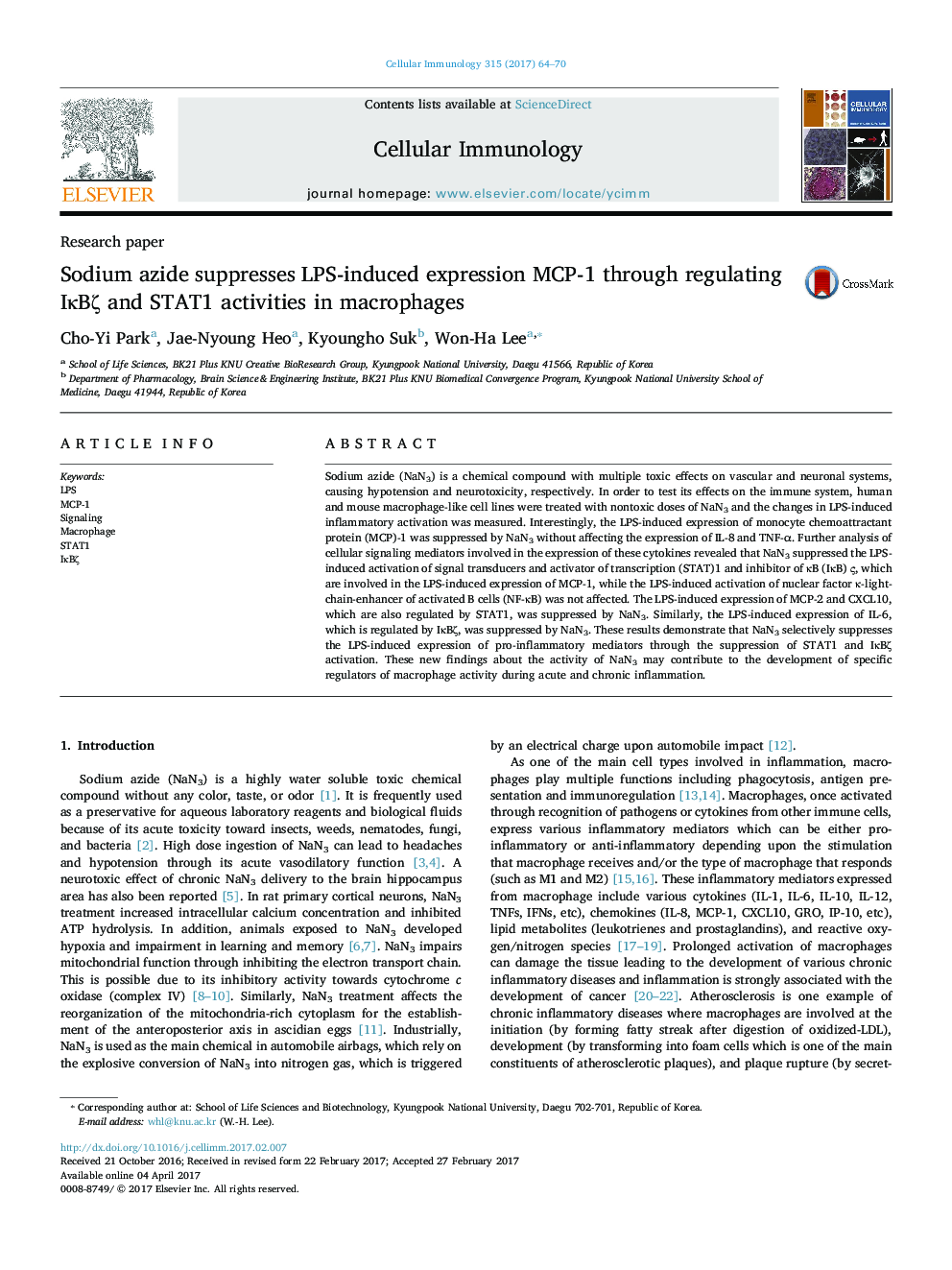| Article ID | Journal | Published Year | Pages | File Type |
|---|---|---|---|---|
| 5530708 | Cellular Immunology | 2017 | 7 Pages |
â¢Sodium azide treatment suppressed LPS-induced expression of MCP-1 in macrophages.â¢The suppressive effect was possible through inhibition of STAT1 and IκBζ activities.â¢Sodium azide did not affect LPS-induced activation of NF-κB pathway.â¢Further study on the mechanism can be beneficial for the treatment of inflammatory diseases.
Sodium azide (NaN3) is a chemical compound with multiple toxic effects on vascular and neuronal systems, causing hypotension and neurotoxicity, respectively. In order to test its effects on the immune system, human and mouse macrophage-like cell lines were treated with nontoxic doses of NaN3 and the changes in LPS-induced inflammatory activation was measured. Interestingly, the LPS-induced expression of monocyte chemoattractant protein (MCP)-1 was suppressed by NaN3 without affecting the expression of IL-8 and TNF-α. Further analysis of cellular signaling mediators involved in the expression of these cytokines revealed that NaN3 suppressed the LPS-induced activation of signal transducers and activator of transcription (STAT)1 and inhibitor of κB (IκB) Ï, which are involved in the LPS-induced expression of MCP-1, while the LPS-induced activation of nuclear factor κ-light-chain-enhancer of activated B cells (NF-κB) was not affected. The LPS-induced expression of MCP-2 and CXCL10, which are also regulated by STAT1, was suppressed by NaN3. Similarly, the LPS-induced expression of IL-6, which is regulated by IκBζ, was suppressed by NaN3. These results demonstrate that NaN3 selectively suppresses the LPS-induced expression of pro-inflammatory mediators through the suppression of STAT1 and IκBζ activation. These new findings about the activity of NaN3 may contribute to the development of specific regulators of macrophage activity during acute and chronic inflammation.
